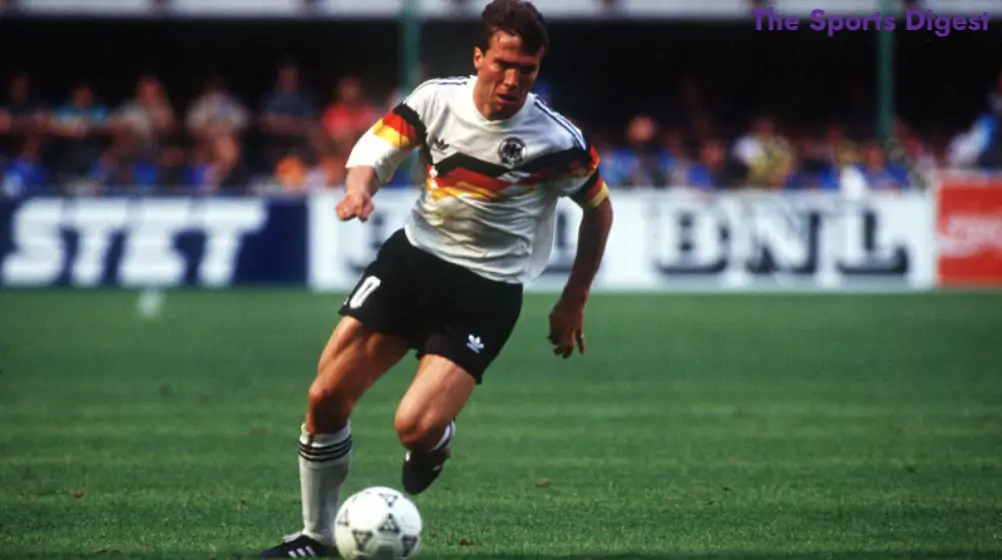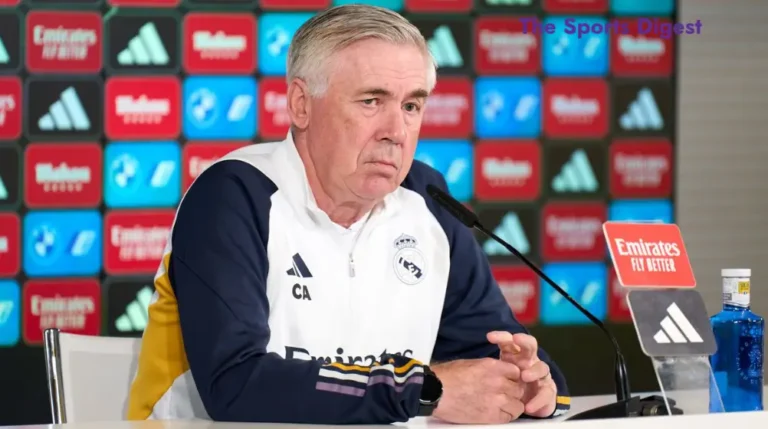Lothar Matthäus: Germany’s 1990 World Cup Captain
If you’re a football fan or even just an occasional sports follower, you’ve likely heard of Lothar Matthäus, one of the greatest football players in history. This German player, whose influence extended beyond the football pitch, also found success in coaching and management. His remarkable achievements have made him a living legend in the world of sports. In this article, we will explore Lothar Matthäus’s football career, his achievements with both clubs and the national team, as well as his coaching career and significant impact on football in various countries.
Table of Contents
Early Beginnings in Football
Lothar Matthäus was born on March 21, 1961, in Erfurt, East Germany (which was known as the German Democratic Republic at the time). Lothar Matthäus’s passion for football developed early on, and he pursued a professional career in the sport. His journey began in 1979 when he joined Borussia Mönchengladbach, where he played for five years until 1984. Despite his young age, Lothar Matthäus displayed immense talent and quickly became one of the key players for the team. During his time with Mönchengladbach, he played 162 matches and scored 36 goals, becoming a rising star in German football.
Move to Bayern Munich and Rise to Prominence
In 1984, Lothar Matthäus made a pivotal decision to transfer to Bayern Munich, one of the most prestigious football clubs in Germany and across Europe. This move proved to be a defining moment in Matthäus’s career. At Bayern, his talent flourished, and his reputation as a world-class player grew exponentially. Over the course of his four seasons at the club, from 1984 to 1988, Lothar Matthäus made 113 appearances and scored 57 goals, showcasing his ability to both dominate midfield and contribute to the attack.
His time at Bayern Munich marked a significant phase in Lothar Matthäus’s development as a player. He became one of the club’s most influential figures, helping the team secure several domestic and international titles. Matthäus’s skill, leadership, and versatility made him one of the standout performers in both the Bundesliga and European competitions. His move to Bayern Munich not only enhanced his personal career but also solidified his place as one of the most important players in world football during that era, laying the foundation for future successes.
Italian Adventure with Inter Milan
In 1988, Lothar Matthäus made a move to Italian football, joining Inter Milan. His time in Italy was highly successful as he played for the club from 1988 to 1992. During his 115 appearances for Inter Milan, Lothar Matthäus scored 40 goals and became one of the best players in Serie A during that period. His physical style of play, ability to control the midfield, and leadership made him a standout performer in the Italian league, contributing to the success of Inter Milan during his tenure.
Return to Bayern Munich and Conclusion of His Playing Career
After his successful stint in Italy with Inter Milan, Lothar Matthäus made a return to Germany in 1992, rejoining Bayern Munich. His second spell with the club was marked by continued excellence on the pitch. Over the course of eight years, Matthäus played 189 matches and scored 28 goals, proving that age had not diminished his skill and impact. Despite being in his thirties, he remained a vital player for Bayern Munich, contributing both defensively and offensively.

Matthäus’s leadership and experience were invaluable to the team, and he continued to perform at a high level in Germany’s top division. His time at Bayern Munich from 1992 to 2000 solidified his legacy as one of the club’s greatest players. Toward the end of his playing career, Lothar Matthäus sought a new challenge in Major League Soccer in the United States. In 2000, he joined MetroStars, where he played for a brief period, featuring in 16 matches but failing to score any goals. Despite the short-lived experience, Matthäus’s move to MLS marked the final chapter of his illustrious playing career.
International Achievements with the German National Team
Matthäus’s success was not confined to his club career; his contributions to the German national team were equally remarkable. He represented Germany in four World Cups: 1982 in Spain, 1986 in Mexico, 1990 in Italy, and 1994 in the United States. Over the course of these tournaments, Lothar Matthäus became an integral part of the national team’s success. His leadership, skill, and versatility made him a standout performer in every World Cup he participated in.
In 1990, Matthäus’s leadership was instrumental in Germany’s World Cup victory. As captain, he guided the team through a tense and thrilling tournament, culminating in a 1-0 win over Argentina in the final. Matthäus’s midfield dominance, work ethic, and ability to control the tempo of the game were critical to Germany’s triumph. This victory not only secured Germany’s third World Cup title but also solidified Matthäus’s legacy as one of the greatest players in history. In recognition of his outstanding performances, Matthäus became the first player ever to win the FIFA World Player of the Year award in 1990.
Matthäus and World Cup Records
Matthäus made history by becoming the most-capped player in World Cup history, a remarkable achievement that set him apart from his peers. He played in five editions of the tournament, a feat that remains unprecedented to this day. His first appearance came in the 1982 World Cup in Spain, followed by Mexico in 1986, Italy in 1990, the United States in 1994, and France in 1998. Matthäus’s consistency and longevity at the highest level of international football demonstrated his exceptional fitness, commitment, and talent.

In the 1990 World Cup, Matthäus’s leadership and performances were key to Germany’s victory. As captain, he played a crucial role in controlling the midfield and directing the flow of the game. His ability to read the match and make decisive passes was invaluable to the team. His tireless work rate and defensive contributions, combined with his offensive creativity, made him an all-around player who was vital to Germany’s success. Matthäus’s leadership on the field inspired his teammates and guided Germany to their third World Cup title, solidifying his legacy as one of the greatest players to ever compete on the world stage.
Transition to Coaching
After retiring from playing, Matthäus moved into coaching, embarking on a new chapter in his career. His first coaching role came in the 2001–2002 season when he took charge of Austrian club Rapid Vienna. However, his time there was short-lived. In 2002–2003, Lothar Matthäus moved on to coach Serbian club Partizan Belgrade before taking over as head coach of the Hungarian national team in 2003. He led Hungary until 2005 but was unable to achieve significant success with the team.
Matthäus then ventured to Brazil, where in 2006 he became the first German coach to manage a Brazilian club, Atlético Paranaense. However, after just seven games, he left the club, citing a desire to stay closer to his family. Later on, Matthäus coached Austrian club Red Bull Salzburg and briefly worked alongside Italian coach Giovanni Trapattoni. After a disagreement over playing style, Lothar Matthäus left the club. He then moved on to manage the Israeli team Maccabi Netanya before eventually becoming the coach of the Bulgarian national team.
Legacy and Impact on Football
Lothar Matthäus was not just a talented player; he was also a natural leader and an inspiration to many players who had the opportunity to play alongside him or under his guidance. His playing style was characterized by his ability to read the game, make precise passes, and constantly be involved in both defensive and offensive plays. His strong personality and commitment to the game motivated his teammates to perform at their best.
As a coach, Matthäus’s influence extended beyond Germany, as he worked in various countries and left his mark on teams across Europe and beyond. He presented a modern coaching approach that combined his vast experience with a unique ability to connect with players.
Conclusion
Lothar Matthäus is undeniably one of the greatest footballers of all time. His achievements, both at the club level and internationally, cemented his place as a football legend. From his iconic performances in five World Cups to his successful club career, Matthäus’s legacy is one that will live on for many years to come. Even after retiring from playing, Lothar Matthäus continues to impact the world of football through his coaching, ensuring that his name remains synonymous with excellence and leadership in the sport. His story is one of dedication, hard work, and unparalleled success, making him a true icon in the world of football.
Have you ever read an article like this?
There are no reviews yet. Be the first one to write one.






